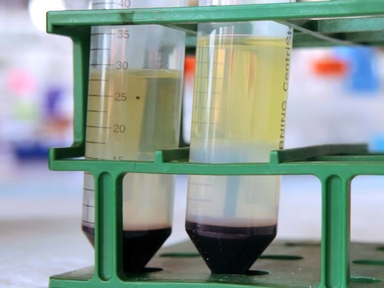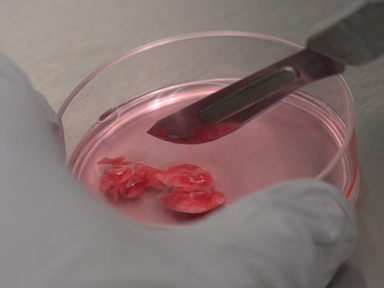Isolation of Human Umbilical Vein Endothelial Cells and Their Use in the Study of Neutrophil Transmigration Under Flow Conditions
August 8th, 2012
•This article first describes a procedure for isolating human endothelial cells from umbilical veins and then shows how to use these cells to examine neutrophil transmigration under flow conditions. By using a low-volume flow chamber made from a polymer with the optical characteristics of glass, live-cell fluorescent imaging of rare cell populations is also possible.
Tags
Related Videos

Quantitative In vitro Assay to Measure Neutrophil Adhesion to Activated Primary Human Microvascular Endothelial Cells under Static Conditions

A Flow Adhesion Assay to Study Leucocyte Recruitment to Human Hepatic Sinusoidal Endothelium Under Conditions of Shear Stress

Human Neutrophil Flow Chamber Adhesion Assay

Real-time Imaging of Endothelial Cell-cell Junctions During Neutrophil Transmigration Under Physiological Flow

In Vitro and In Vivo Model to Study Bacterial Adhesion to the Vessel Wall Under Flow Conditions

The Use of Flow Cytometry to Assess the State of Chromatin in T Cells

Neutrophil Isolation and Analysis to Determine their Role in Lymphoma Cell Sensitivity to Therapeutic Agents

Quantification of Monocyte Transmigration and Foam Cell Formation from Individuals with Chronic Inflammatory Conditions

Isolation and In Vitro Culture of Murine and Human Alveolar Macrophages

Simultaneous Study of the Recruitment of Monocyte Subpopulations Under Flow In Vitro
ABOUT JoVE
Copyright © 2024 MyJoVE Corporation. All rights reserved